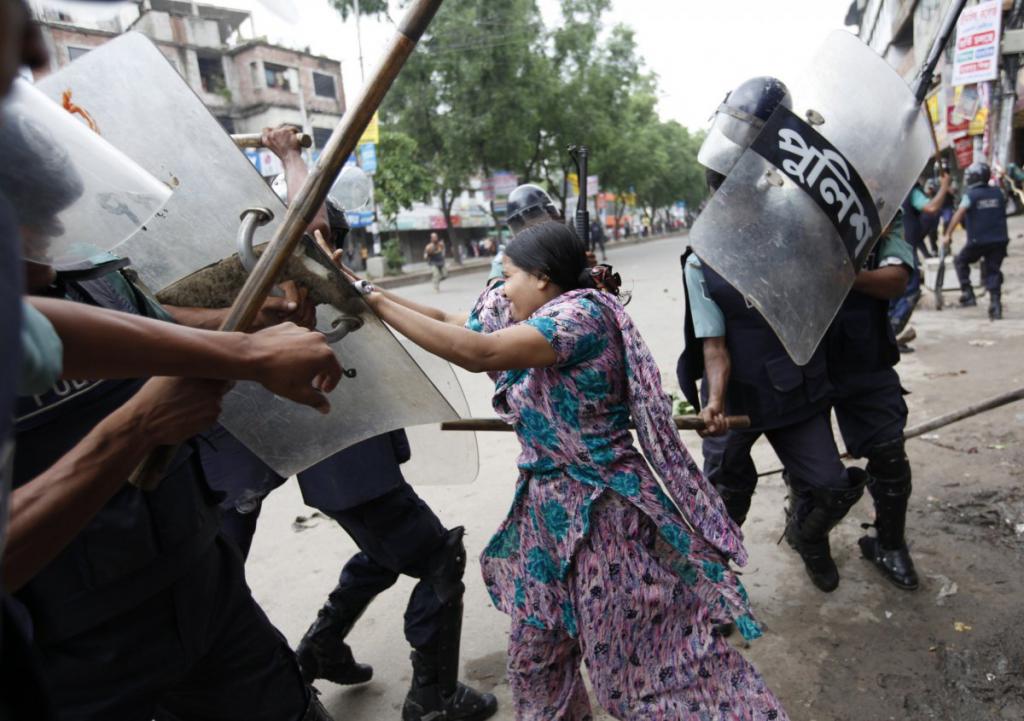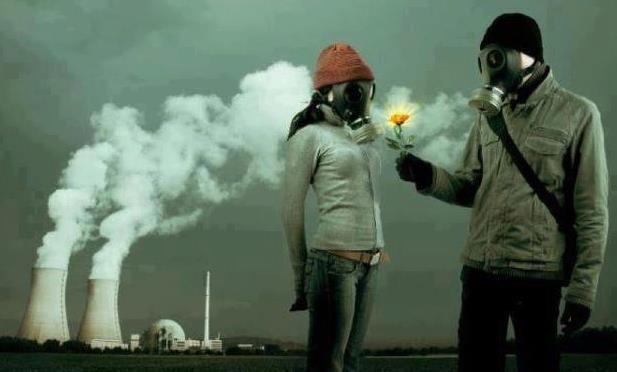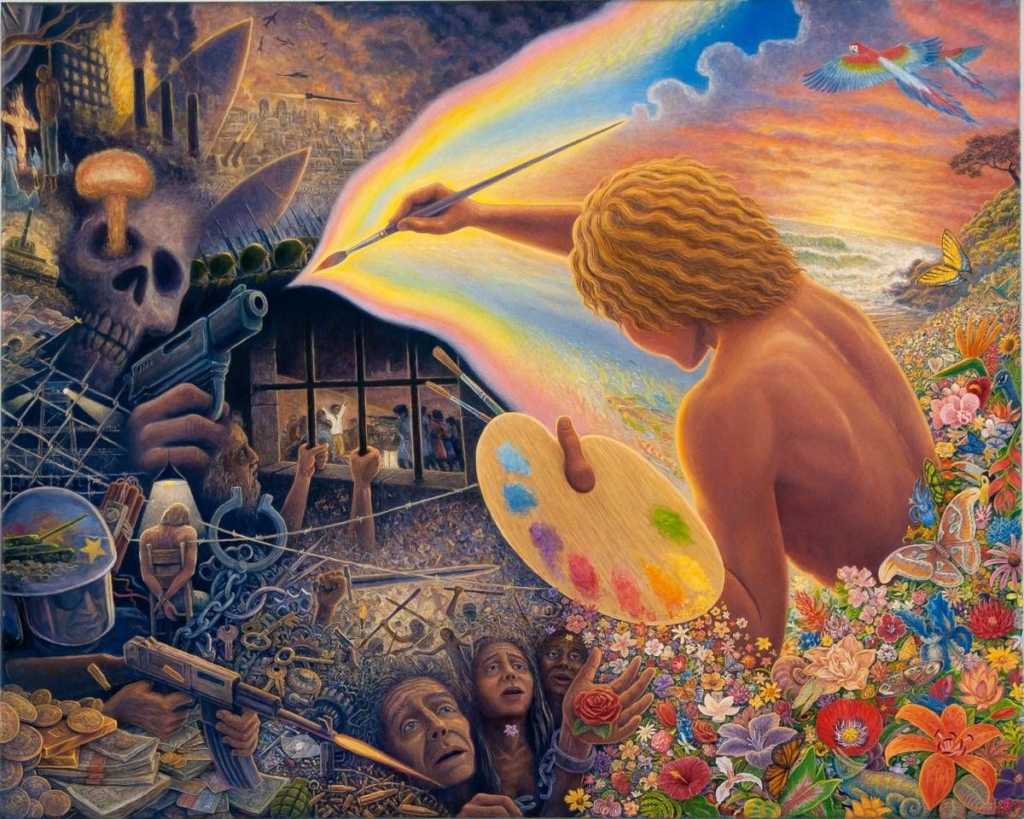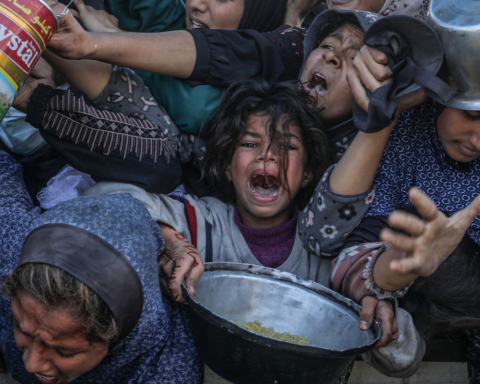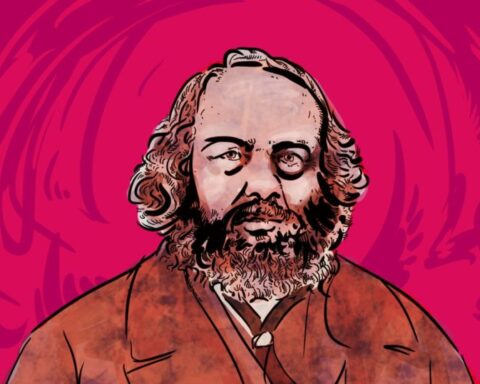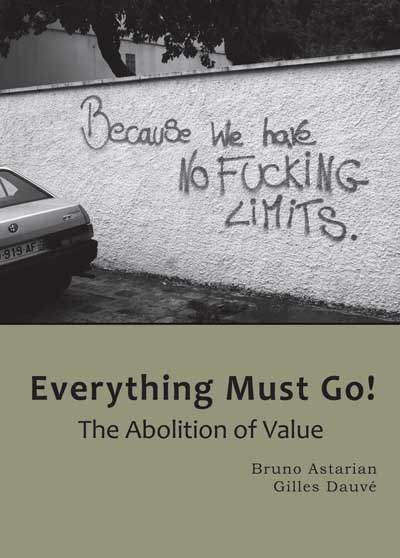
This book is about a revolution (i.e. a historical break, not gradual peaceful evolution) that creates communism – not its preconditions.
The main difference between present communist theory and its previous expressions is that it has now become impossible to conceive of communism as a society of associated producers. This book is about a revolution (i.e. a historical break, not gradual peaceful evolution) that creates communism – not its preconditions. Wage-labour, work-time as cut off from the rest of our life, money, private property, State agencies as mediators of social life and conflicts, all of these must go, and not just be run by collectives. Social change will take time but will start from Day One: in the very early days, the way the insurgents will treat workplaces, organize street-fighting and feed themselves will determine the future unfolding of events.
This is no easy task in practice, nor in theory: questioning some of the basics of communism runs into supposed common sense as well as against long-held revolutionary principles. First, what could a communist insurrection be? Secondly, we cannot dispense with revisiting the Marxian theory of value. We can no longer regard the first chapter of Capital as the foundation of a theory of value adequate to our time. Lastly, this is the real world we are talking about. From bicycles to child-rearing, everything relates to ways of life now determined by capital/wage labour relations. This is why the last part of the book broadens the field to a number of vital and daily issues, so-called small ones as well as big ones.
READ and SHARE THE BOOK at Void Network Library / Revolution:
Contents
Foreword
Part One: Crisis Activity and Communisation – Bruno Astarian
Introduction
I. Crisis and Crisis Activity 3
1.1 With the crisis of the reciprocal presupposition of the classes,
automatic social reproduction disappears 3
l.2 Proletarian individualisation in crisis activity 6
l.3 Taking possession of capital elements, but not to work 8
Conclusion 10
II. The Current Crisis 11
11.1 Periodization 11
11.2 The conditions for communism at the outset of the 21st c. 11
11.2.1 Anti-work is back 12
Case of the textile workers, Bangladesh 15
Case of public transportation 17
11.2.2 Demassification of the proletariat 19
Case of Greece, December 2008 20
Conclusion 21
Ill. Communisation 23
111.1 Communisation and transitional society 23
111.2 The issue of gratuity 24
111.3 Production without Productivity 26
111.3.1 The struggle for totalizing activity 27
111.3.2 The end of separation of needs 29
111.3.3 The issue of the individual 32
111.4 Consumption without necessity 34
Conclusion 35
General Conclusion 35
Part Two: Value and its Abolition – Bruno Astarian
1 Marx’s vision of the abolition of value 37
1.1 The Critique of the Gotha Program 37
1.1.1 Distribution of the social product and rate of
exploitation of “free men” 38
1.1.2 Abolition of the market and abolition of value 40
1.1.3 Work certificates, the law, and the police 41
1.1-4 Father Enfantin’s benediction 43
1.2 GIK and labor-time accounting 47
2 Marx’s theory of value, per chapter 1 of Capital 51
2.1 The starting point: the commodity 51
2.1.1 Use value 51
2.1.2 Exchange value, value 52
2.1.3 Rubin on abstract labour 54
2.2 The substance of value: the issue of abstract labour 55
2.2.1 – From commodity to labour-substance of value 55
2.2.2 – The two approaches to abstract labour 56
2.2.2.1 – Social approach 56
2.2.2.2 – The physiological approach:
the expenditure of human labour power 58
2.3 Measure of value 60
2-4 Value and society in the first chapter of Capital 61
2.4.1 Which producers? 61
2.4.2 Which exchanges? 64
2.4.2.1 Selling 65
2.4.2.2 Buying 66
2.5 Commodity fetishism 69
3 Marx’s theory of value revisited 72
3.1 The starting point: capital resting on its own basis 72
3.2 Interdependence and multiplication of capitals 74
3.3 Value-producing labour (abstract labour?) 78
3.3.1 Productivity 80
3.3.1.1 Productivity and socially necessary
Jabour time 80
3.3.1.2 Competition and monopoly 82
3.3.2 Standardization 84
3.3.2.1 Usefulness of objects and utility value of
commodities 84
3.3.2.2 Labour standardization 88
3.3.3 Valorizing labour 92
3.4 Substance and magnitude of value; value realization 92
3-4·1 Time, the substance of value 93
3.4.1.1 Embodiment of valorizing Jabour in the
commodity 93
3.4.1.2 The substance of value, that which
circulates 94
3.4.1.3 The substance of value, that which is
measured 97
3.4.2 Exchange of commodities, realization of value 98
3.5 Provisional conclusion 100
4 What is at stake in casting the theory of value concretely? 101
4.1 Doing away with abstract labour 101
4.2 The false threat of life’s commoditization 104
4.3 Is the proletariat’s struggle against value or capital? 107
4.3.1 Labour market 108
4.3.2 Production 109
4.3.3 Private life 110
4.4 Value and class struggle 111
4.4.1 Daily struggles and devalorization 112
4.4.2 Insurrection and “devaloration:” changing the
social form of nature 113
4.5 Value abolished: abolishing concrete labour 118
4.5.1 Negation of productivity 119
4.5.2 Negation of standardization 122
Conclusion 125
Part Three: A to Z of Communisation – Gilles Dauvé
Autonomy 131
Blue Collar 132
Class 135
Daily Life 138
Ecology 141
Family 145
Giotto 148
Habitat 152
Insurrection 153
Jailbreak 158
Karl (Marx) 162
Labour 165
Money 158
Non-Economy 171
Obfuscation 174
Politics 176
Query 179
Revolution 181
Sex 183
Gilles Dauve
Time (is of the Essence) 187
Unlabelled 192
Value 195
Work 198
Xenophilia 200
Yesterday 203
Zomias 206
___________________________
you can ORDER THE BOOK here:
https://littleblackcart.com/index.php?dispatch=products.view&product_id=551
